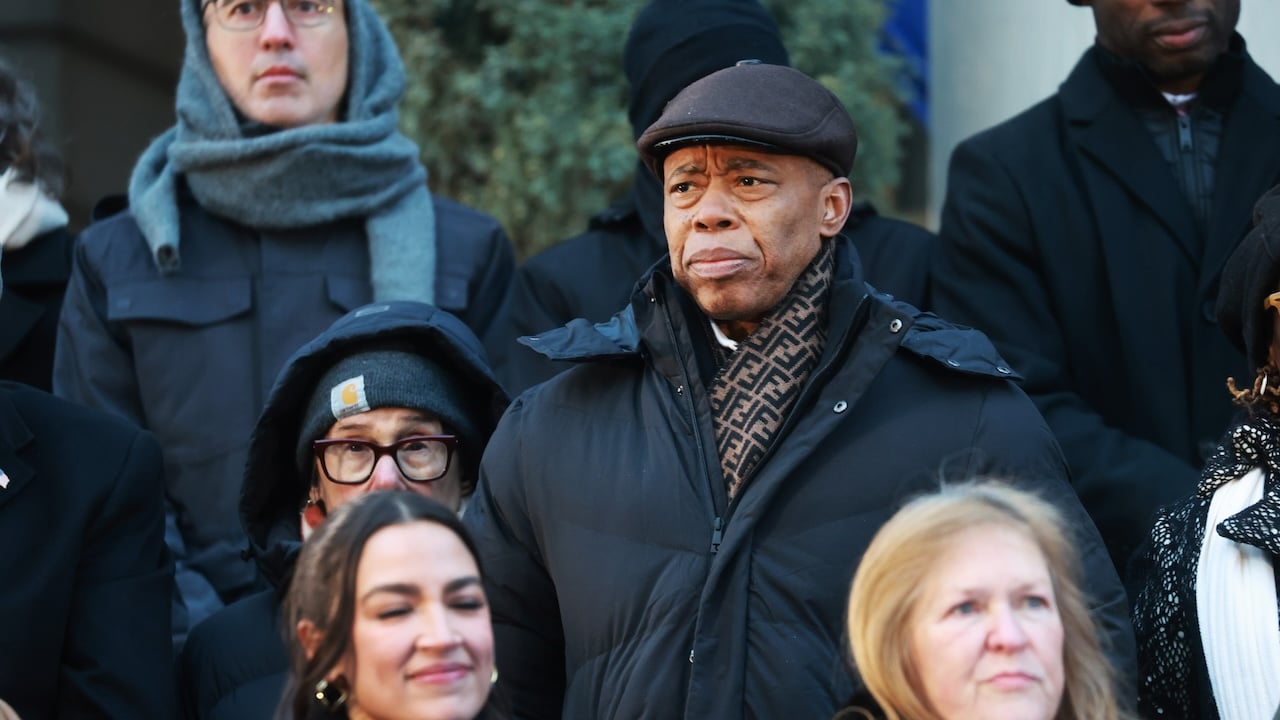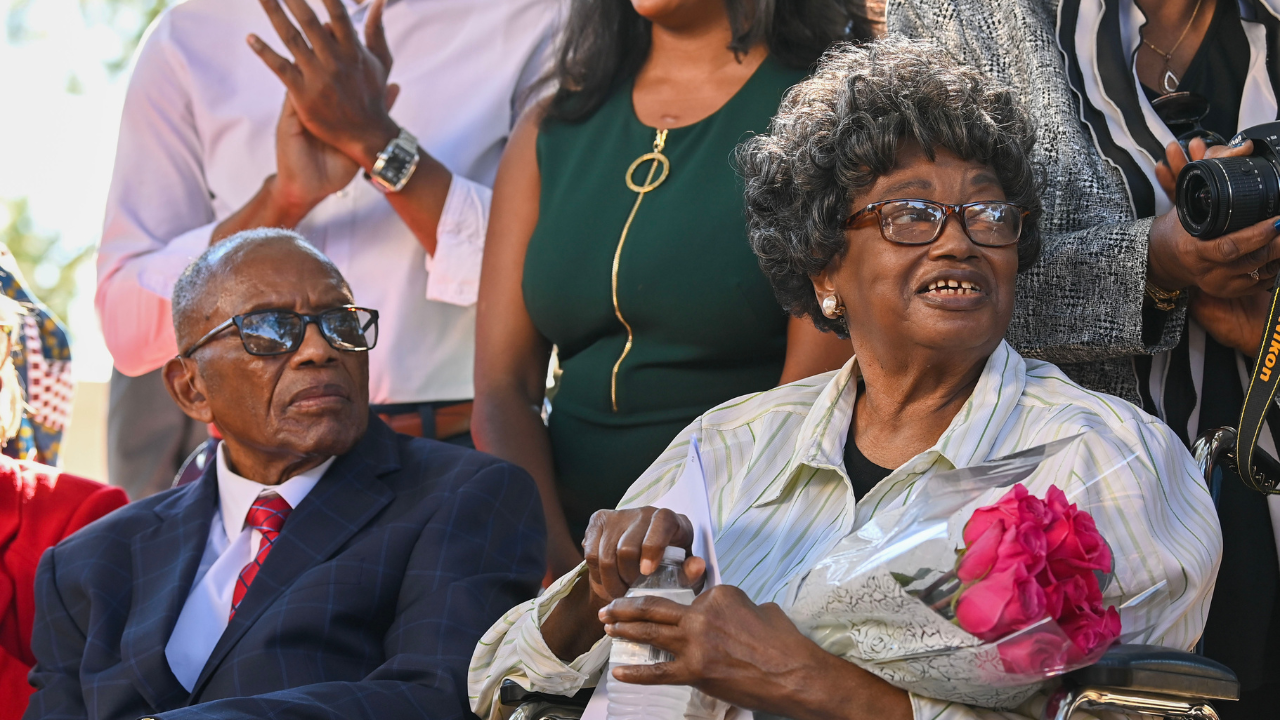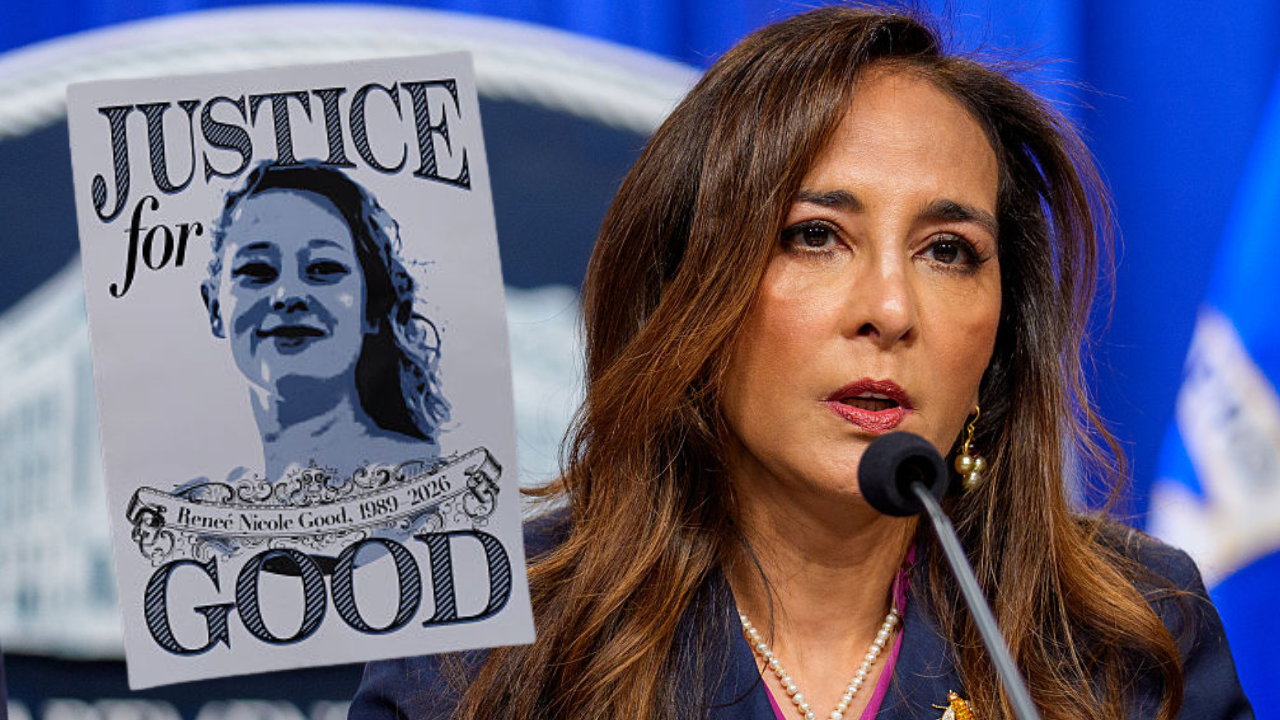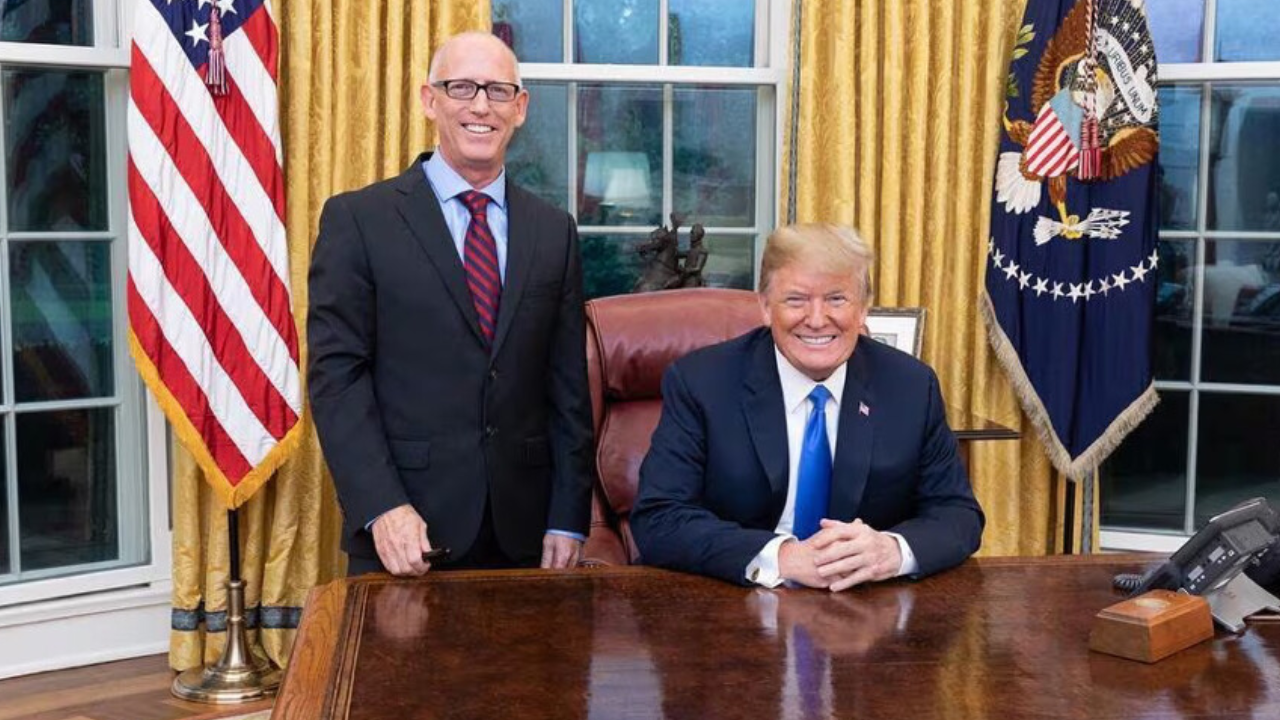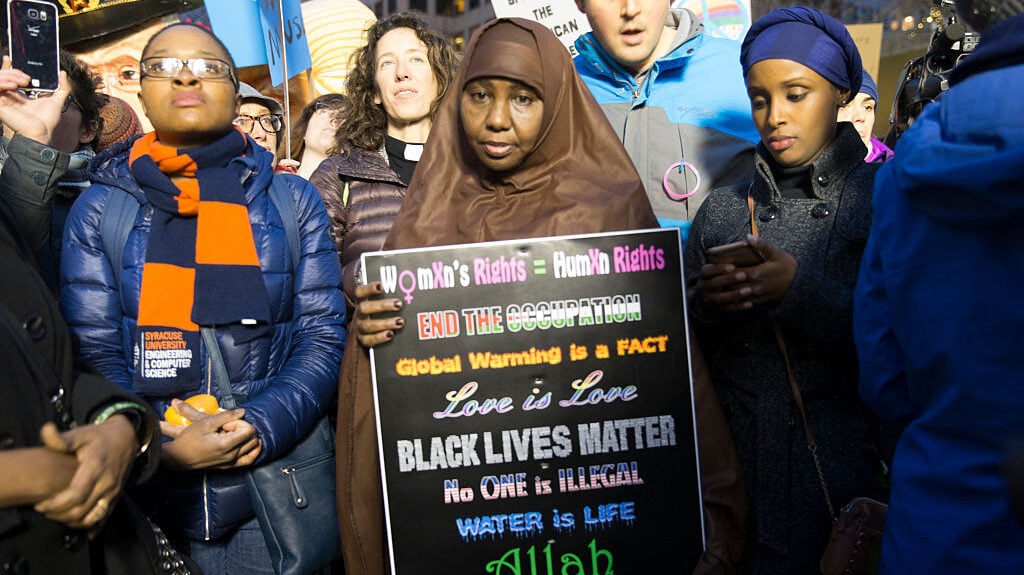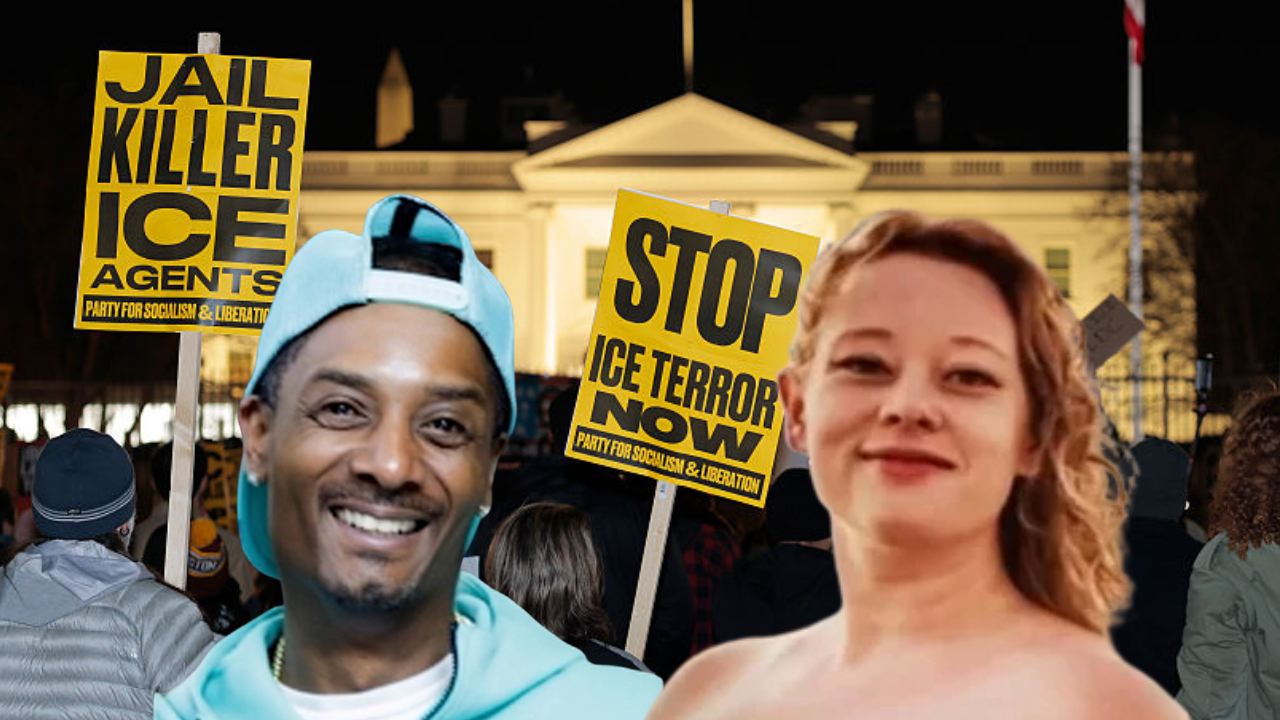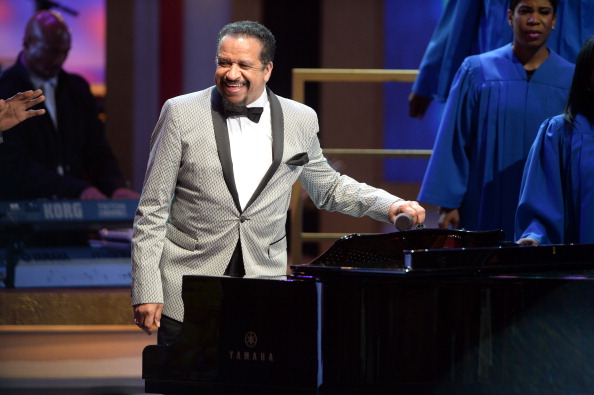AEW’s MVP knows the secret to The Hurt Syndicate’s success. And he’s ready to tell you

The Hurt Syndicate hurts people.
That’s something wrestling arena audiences love reminding viewers on their couches when the group makes its entrance.
Professional wrestlers MVP, Bobby Lashley and Shelton Benjamin, who form The Hurt Syndicate, relocated their business from World Wrestling Entertainment (WWE) to All Elite Wrestling (AEW) about a year ago. And business was booming. The trio, with storied careers and resumes, ran roughshod over the competition and brought their unique brand of elegance, violence and hip-hop into AEW’s equation.
Much of that dominance starts with MVP, also known as Montel Vontarious Porter. MVP’s wrestling career started in the late 1990s with notable stints in Total Nonstop Action Wrestling (TNA), New Japan Pro Wrestling (NJPW), and WWE.
Besides accumulating championships and accolades, Porter forged friendships with Benjamin and Lashley that transcended professional wrestling’s sometimes shark-infested waters. Whether they were together in the same company or working on different sides of the globe, their bond remained strong. In the throes of the pandemic, that relationship took center stage.
MVP spearheaded the formation of The Hurt Business, now known as The Hurt Syndicate. It’s cliché to say that MVP, Lashley, Benjamin and their other real-life friend, Cedric Alexander, turned the world of professional wrestling on its ear, but clichés are often built upon truth. The group was never about race, but well-dressed Black men who carried themselves like CEOs while not playing into stereotypes, which was new for an industry that usually did the opposite.
They weren’t punchlines, but rather they did the punching. And lots of it. They flew on private planes, sipped the finest champagne, and always looked like the coolest guys in the room. The boos from the crowd soon turned to cheers. Even as wrestling bad guys, it became difficult to hate them.
That sentiment remains true today, but why is that? If anyone knows, it’s MVP. Andscape spoke with the entrepreneur about the group’s allure, the state of the Syndicate one year into its AEW run, how his profession intersects with hip-hop, and how a conversation with Lashley helped him see a larger picture in relation to Black representation in wrestling.
Our conversation has been lightly edited and condensed.

AEW
When The Hurt Business disbanded in WWE, you said there was more story to tell and wanted the opportunity to do so. Now that you’re in the midst of that story as The Hurt Syndicate, has that story changed since coming to AEW?
There’s a saying in our business: “card subject to change.” Nothing goes exactly the way you plan it, that’s just how life is. But we are definitely on our way, and so far so good. Tony Khan [AEW CEO and president] has been super cool, giving us that opportunity to resume The Hurt Syndicate. We’re having fun and we’re working with people we like. Bobby and Shelton already have the fountain of youth, but just being around some of the younger guys who ask us for advice and insight helps us maintain that internal youth. I certainly get a kick out of it when they ask for my opinions on their match or how I can help them with promos. That lights a bit of a fire under me. And after over 20 years in the business, that’s one of the things that keeps me interested in what I do.
You held the tag team championships for 214 days and dominated the competition. But then you lost the championships this summer thanks to outside interference, and now you’re in a war with the Ricochet and the Gates of Agony. What’s the state of The Hurt Syndicate as your first anniversary in AEW looms?
Business is still good. Bobby [Lashley] said he wanted to be a tag champion because that’s the only thing he’s never been in his career. So we decided we’d check that box on his career bucket list. Now we’re in an awesome battle with Ricochet and the Gates of Agony. And even that’s according to plan. At the end of the day, we realize we’re aging veterans. And from a creative standpoint, our goal is to develop new champions — to pick young players and elevate them at our expense. You don’t make new stars by doing jobs; you make new stars by doing business. Gates of Agony gets elevated just by being in the ring with us.
Wrestlers rarely go up a few rungs on the career ladder just by being next to other wrestlers. What is it about The Hurt Syndicate that makes audiences hold you in such high esteem?
Two things. First, we’re organic. It’s real, and people can see through it when it’s not. We’re not playing a role; we are three legit grapplers who can get down and are actually friends. Fans see that.
Second, we can legitimately hurt people. Darth Vader is supposed to be the bad guy, but who doesn’t like Darth Vader?
Seeing you three grow over the years also makes the group genuine. How has MVP evolved from your early days to now?
Man, I’m constantly evolving. Ric Flair said to me a long time ago, “You never stop learning. And when you stop learning, it’s time to quit.” I’m always looking for new approaches to my promos or elevating the talent around me. I’m always adding nuances and new levels to my on-screen character. I recently decided to switch things up because for the longest time I wore Gucci shoes with my custom suits, but now I’m wearing Js [Jordans]. Shelton and Bobby stopped wearing ties so much. We just freshened our look up a bit, so it’s a constant evolution. And I even get some of these young guys to teach me new things as well.
Over the course of your 20 years, how has the state of Black wrestlers evolved?
Bobby said something that I thought was really cool and changed my outlook on things a little bit: He wants to normalize Black champions in wrestling. That struck a chord with me because you don’t say “Michael Jordan is a six-time Black NBA champion.” You don’t say “Floyd Mayweather is a multi-time Black boxing champion.” And because for so long, there has been a dearth of Black champions in high positions in professional wrestling, it’s refreshing to see now — certainly in AEW — Swerve Strickland hold a title. And eventually, you will see Bobby hold the title. I’m sure Shelton will hold a singles title; it feels good. Now, there’s still some work to do. There’s still a ways to go. But I’d love it if we could get to a place where we don’t have to talk about “Black” wrestling champions because they’re so rare.
Pro wrestling is embracing Black culture more now than in the past. How does it feel seeing members of the Black community find meaning in The Hurt Syndicate’s existence?
It’s a wonderful opportunity for us to come together and serve as role models. I used to get DMs, and still do every now and then, of young Black men in suits saying they want to look like The Hurt Syndicate. One day, when I was getting measured for some suits, my son put on a little kid’s sport jacket and asked if I could start a Hurt Business Kids. It’s really inspiring when I see young men express that there’s somebody on television in the wrestling industry that they can aspire to be and who looks like them. Representation matters.
As it relates to that representation and the authenticity you talked about, The Hurt Syndicate’s theme is pure hip-hop. How did it come together, and how does it feel when audiences around the world rap along with the track?
It feels magnificent, man. Westside Gunn, Smoke DZA and I have been friends for a while. They made a song called “The Hurt Business” back when we were The Hurt Business. Then I hit up Smoke DZA and asked, “How you guys make a song and you don’t have me on it?” So I dropped my verses on the remix. When we decided to go to AEW, I told them we’d need a new theme song.
When we’re out there and thousands of people are screaming, “We hurt people!” or I see people in public screaming it, it feels good. It’s an extension of who I am, so when I see that it’s really appreciated and received positively by people, it’s uplifting. And it validates everything that I do as a professional wrestler.
You also play a part in Fourth Rope, Smoke DZA and Westside Gunn’s wrestling promotion. How important is what they’re doing as it relates to pro wrestling and hip-hop?
It’s about giving hip-hop an authentic space in professional wrestling. It has never been an authentic place where hip-hop was welcomed. Fourth Rope is a legitimate wrestling promotion run by legitimate hip-hop artists who have an unbridled passion for pro wrestling. It’s a home for wrestling fans who love hip-hop and who love the culture. There are a lot of young Black talents getting opportunities [in Fourth Rope], but there are also white wrestlers and Hispanic wrestlers. It’s a very welcoming environment for everyone.
If you go to a show, you see an audience of all races, colors, creeds and religions, all doing two things at one time: They’re enjoying hip-hop, and they’re enjoying professional wrestling. For years, there was no space for hip-hop in pro wrestling. At Fourth Rope, you’re getting two of your favorite things in one place, and it’s being done right. It feels good to be able to contribute to something so groundbreaking and hopefully long term and institutional.
How do you feel AEW does regarding letting hip-hop live in its space?
Tony Khan likes hip-hop. We’ve got lots of talent that come out to hip-hop songs; The Hurt Syndicate’s “we hurt people” chant is probably the most authentic thing in pro wrestling right now, and he welcomes it. When you go to AEW shows, it’s not uncommon to find hip-hop artists hanging out.
Whether it’s Gates of Agony or another team that ultimately takes down The Hurt Syndicate, is that the end of the road for your careers?
That’s up to Bobby and Shelton and what they want to do in their careers as wrestlers. It’s also ultimately what Tony Khan wants down the stretch. I haven’t officially retired from in-ring action yet. I haven’t had my last match, which will come at some point. I’m going to lose to somebody and go out on my back, which is what we were always taught to do. But there’s a possibility I might be around for a while after that as a mouthpiece for a young talent that needs that.
I can’t speak for Bobby or Shelton’s goals beyond the next few years. I know they both have other things they’d like to accomplish in life, but they both want to end their careers in AEW. What’s the timeline on that exactly? I can’t say.
When that time comes, what do you want The Hurt Syndicate’s legacy to be?
That we were those dudes. We were fashionable, we kicked a– with flair and style, and we took over every room we went into just by our presence. We were those dudes who came in, forged impressive careers for ourselves, and then came together, combining our collective knowledge and career accomplishments to serve as role models to the young talent that comes behind us.
The post AEW’s MVP knows the secret to The Hurt Syndicate’s success. And he’s ready to tell you appeared first on Andscape.
What's Your Reaction?
 Like
0
Like
0
 Dislike
0
Dislike
0
 Love
0
Love
0
 Funny
0
Funny
0
 Angry
0
Angry
0
 Sad
0
Sad
0
 Wow
0
Wow
0




